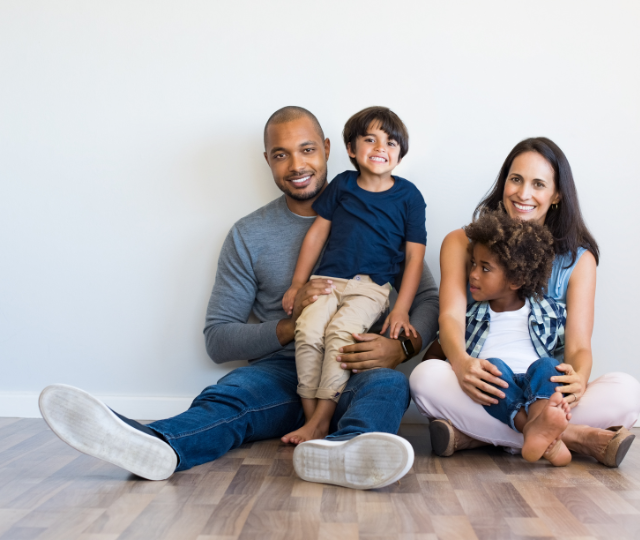Protect yourself and your family from the toxic chemicals in tobacco smoke and vapour by keeping your home and vehicle smoke and vapour free. It is against the B.C. Motor Vehicle Act to smoke or use vapour products in a vehicle with a child under the age of 16.
Tobacco & Vaping Information for Families
Learn about how you can protect your family from the harms of tobacco and vaping products.

Helping your child stay smoke-free
The best thing you can do is model a tobacco and vape free lifestyle.
- Ensure that the spaces where your children live, learn and play are free of tobacco smoke and vapour
- Create a smoke and vape free home and vehicle, and make sure that your child’s other caregivers do the same
- Keep all tobacco and vaping products away from the reach of children to avoid accidental poisoning. Nicotine is toxic and can cause serious health harms, especially to young children
- Support smoke and vape free schools, playgrounds and playing fields in your community
- If you use tobacco, consider quitting. If it is not time for you to quit yet, talk with your child about your experience with smoking. Parents and caretakers who smoke can still make a difference by talking about how difficult it is to quit and that you hope they will not start
Help is available for your child if they use tobacco or vape products through their health-care professional and other services such as QuitNow.
Empowered Parents: Conversations about drugs and decisions with your child
- Helping Your Child Avoid Tobacco, Drugs, and Alcohol | HealthLink BC
- Information for Families | Canadian Lung Association
- Smoking and your child or teen | Caring for kids (Canadian Paediatric Society)
- Talking to your teen abut vaping | Health Canada
- Teenage tobacco use | HealthLink BC
- Vaping and Youth Factsheet | Interior Health
- Vaping Health Education Toolkits for Parents & Teachers | BC Lung Foundation
- Vaping information in BC | Government of British Columbia
- What to Know about Nicotine Pouches
- Nicotine pouches | HealthLink BC
- A Consumer's Guide to Oral Nicotine Pouches
Protecting babies
Babies breathe faster and have less developed immune systems than adults, so they are more affected by tobacco smoke and vaping aerosols. Babies exposed to tobacco smoke are more likely to have:
- Severe asthma and allergy attacks leading to hospitalization
- Ear and chest infections
- Sudden Infant Death Syndrome (SIDS)
- Learning and behaviour difficulties in later years
Take these actions if someone in your household smokes:
- Smoke/vape outside, away from your baby
- Do not let anyone else smoke/vape around your baby
- Breastfeeding still provides many benefits to you and your baby even if you are unable to quit smoking/vaping. Breastfeed first before smoking/vaping or using nicotine gum, lozenges or an inhaler.
- Wear a “smoke-free” shirt after smoking to reduce the transfer of chemicals to your baby.
For more information, see the Babies Need Breathing Space brochure and Safe Sleep for Your Baby
- Babies Need Breathing Space brochure | Interior Health
- Quitting Smoking and Avoiding Smoke During Pregnancy | HealthLink BC
- Safe Sleep for Your Baby | Public Health Agency of Canada


Shari, Maxwell, and Andrew work together across many different teams to provide sustainable, safe, and high quality facilities to patients and staff.
/stories/we-are-ih-staff-who-work-together-patient-comfort-safety


IH offers a range of services to help those who may have mental health, substance use or housing needs.
/stories/sharing-warmth-and-hope-ih-health-services-help-communities


Jayme helps ensure lived experiences are not just welcomed but embedded across Mental Health and Substance Use services at IH.
/stories/we-are-ih-coordinator-centres-peer-voices-care


As temperatures drop, it’s important to be aware of the health risks of cold. Here's what you can do to ensure you remain safe and healthy.
/stories/how-protect-yourself-and-others-when-temperature-drops


Heart disease is the number one killer of women worldwide and the leading cause of premature death in Canada. One in 3 women will be affected by heart disease.
/stories/how-women-experience-heart-disease-differently-men


Wavemakers is a free, groundbreaking virtual reality career-building program where post-secondary students can build skills and connect with employers like IH.
/stories/ih-helps-students-explore-careers-through-virtual-reality-program
STAY CONNECTED
Receive news, alerts, public service announcements and articles right to your inbox.

